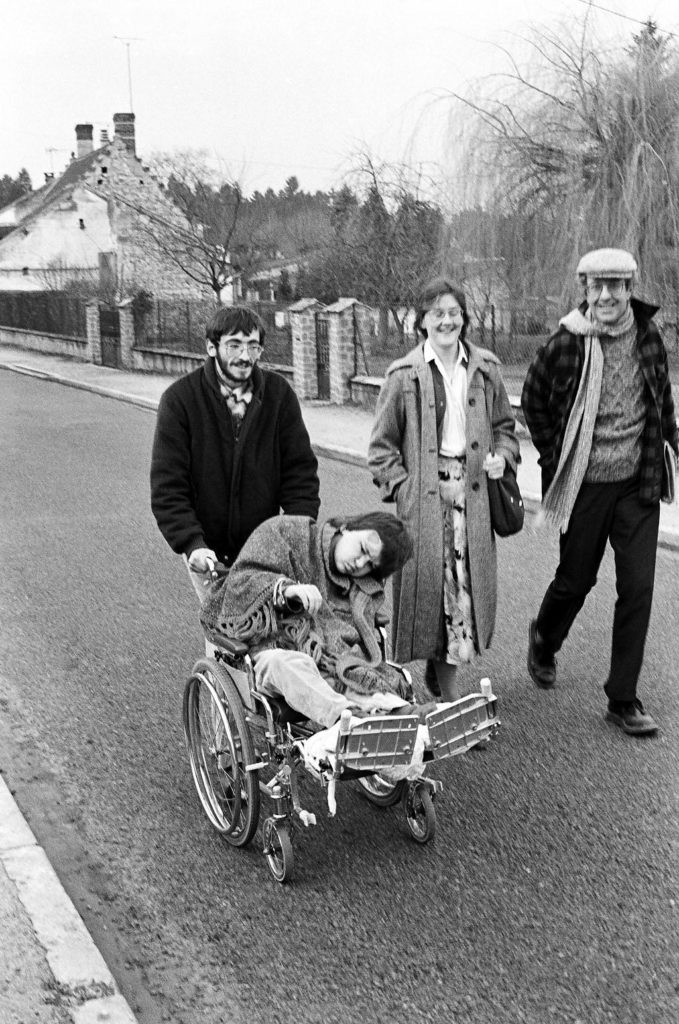Reading: Letter VII—Listening to Jesus (p. 81 to p. 85)
I pray that you will venture on a life with Jesus. He asks everything
of you, but gives you more in return. (p. 85)
As we come to the end of our Lenten journey, we read a letter written by Henri in late-August 1986 shortly after his arrival at L’Arche Daybreak to begin his ministry there. Moving to L’Arche was Henri’s answer to what he called the burning question, “How best am I to follow Jesus?” (p. 81) We know now what Henri couldn’t have known then—at L’Arche during the final ten years of his life Henri found the home he was seeking; he suffered a devastating breakdown and a life-threatening accident; through his suffering he discovered and believed in the depth of his heart that, like Jesus, he was the beloved; and he was inspired to write some of his most memorable books including Life of the Beloved, The Inner Voice of Love, his spiritual masterpiece The Return of the Prodigal Son, and his final book, Adam—God’s Beloved.
In this final letter to Marc, Henri reviews the spiritual journey that he and Marc shared, and that we have benefited from. Henri writes, “My greatest desire was to awaken in you a deep love of Jesus. I’ve told you about the Jesus who liberates, of the suffering Jesus and his compassion; of the Jesus who in humility chose the descending way; of the loving Jesus who challenges us to love even our enemies; and finally of the Jesus of Nazareth who reveals to us the mystery of God’s hiddenness.” (p. 82) (A personal note: As the discussion moderator, it’s wonderful when the author of the book we are reading provides the summary for the concluding post.)
Henri says to Marc, and through him to each of us, “You and I are called to be disciples of Jesus. The differences between us in age, circumstances, upbringing, and experience are small compared with the calling we have in common.” (p. 83) And he reminds us that it is essential to listen to the voice of God in a world that is constantly clamoring for our attention. Henri offers us three forms of listening that were meaningful to him: 1) Listen to the church; 2) Listen to the book (i.e., Bible and other spiritual reading); and 3) Listen to your heart.
Of the three forms of listening, the importance of listening to my heart is my Lenten takeaway and recurring challenge. Henri writes, “You need to set aside some time every day for his active listening to Jesus, if only for ten minutes. Ten minutes each day for Jesus alone can bring about a radical change in your life.” (p. 84). Henri’s words to Marc about the importance of daily prayer could have been directed at me. Deo Volente (God willing) this discussion will inspire me to step away from the hectic world and to spend quiet time every day listening to Jesus —especially on those days when I’m certain that I’m too busy to take the time to pray.
As many of you have been doing, please share whatever touched your heart in the readings or your reflections from this week or anytime throughout Lent. Once again, I want to thank you for joining to share Henri’s Letters to Marc About Jesus during our journey toward Easter. It has been a privilege and a blessing to travel along with each of you—those posting comments and those walking with us silently. We are all on the road to God’s heavenly kingdom and it’s comforting to know we are not alone.
On behalf of the Henri Nouwen Society, may you and yours have a blessed Holy Week and a joyous Easter season.
Peace and all good,
Ray
P.S. Please join us on Wednesday, November 23rd when we will begin our Advent book discussion with welcome and introductions. The book selection for our Advent discussion
will be announced in early-fall.

